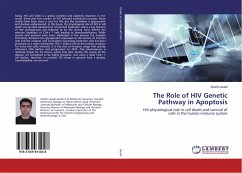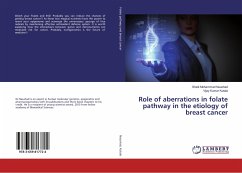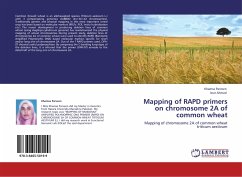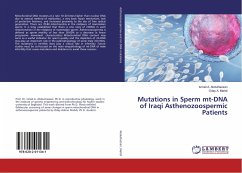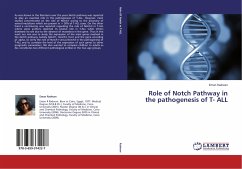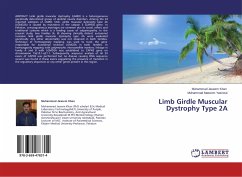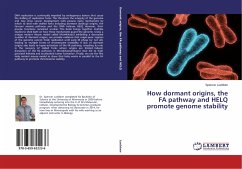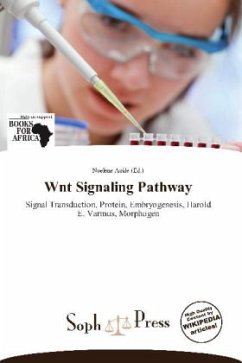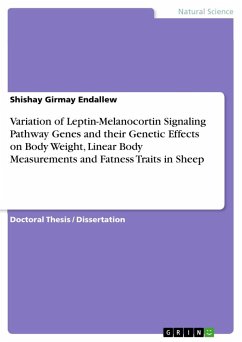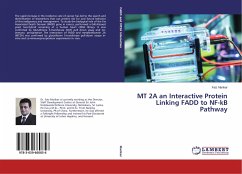
MT 2A an Interactive Protein Linking FADD to NF-kB Pathway
Versandkostenfrei!
Versandfertig in 6-10 Tagen
41,99 €
inkl. MwSt.

PAYBACK Punkte
21 °P sammeln!
The rapid increase in the incidence rate of cancer has led to the search and identification of biomarkers that can predict risk for and future behavior of this malignancy and management. To study the biological role of the Fas Associated Death Domain (FADD) gene in cancer, performed a GAL4-based yeast two-hybrid screening of a human heart cDNA library. It was confirmed by Glutathione S-transferase (GST) pull down assay and Co-immuno precipitation. The interaction of FADD and metallothionein 2A (MT2A) was confirmed by glutathione S-transferase pull-down assays in-vitro and co-immunoprecipitatio...
The rapid increase in the incidence rate of cancer has led to the search and identification of biomarkers that can predict risk for and future behavior of this malignancy and management. To study the biological role of the Fas Associated Death Domain (FADD) gene in cancer, performed a GAL4-based yeast two-hybrid screening of a human heart cDNA library. It was confirmed by Glutathione S-transferase (GST) pull down assay and Co-immuno precipitation. The interaction of FADD and metallothionein 2A (MT2A) was confirmed by glutathione S-transferase pull-down assays in-vitro and co-immunoprecipitation experiments in- vivo.



